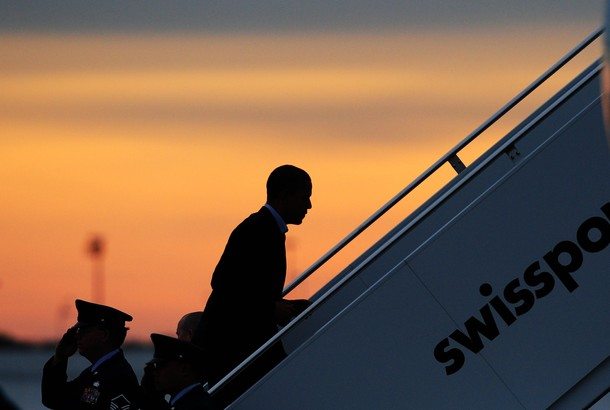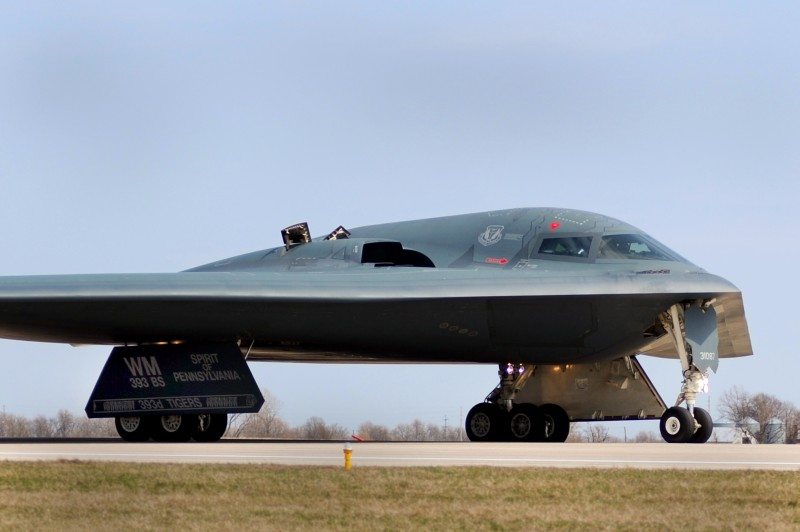US President Barack Obama was due in France Thursday after delivering a powerful speech to Britain’s parliament exalting the future of the transatlantic alliance in the face of the emerging world’s rapid rise.
But the gap between soaring oratory and the intractable nature of modern challenges was laid bare as Obama admitted the current NATO operation in Libya had “limitations” and was able to offer little new hope for Middle East peace.
Also Wednesday, Obama held talks with British Prime Minister David Cameron before rounding off his three-day visit with a dinner for the queen at the US ambassador’s residence in central London.
Obama was greeted in the 900-year-old Westminster Hall by a peal of trumpets and received a rapturous standing ovation after his 40-minute speech to British lawmakers.
“Countries like China, India and Brazil are growing by leaps and bounds,” Obama told members of the two houses.
“As this rapid change has taken place, it has become fashionable in some quarters to question whether the rise of these nations will accompany the decline of American and European influence around the world,” Obama said.
“Perhaps, the argument goes, these nations represent the future, and the time for our leadership has passed.
“That argument is wrong. The time for our leadership is now.”
Obama argued that while the transatlantic alliance had been forged in the desperate days of World War II and the Cold War, it now needed to lead by the power of its ideas and be refashioned for emerging economic challenges.
Obama’s speech came less than a month after his global leadership credentials were bolstered by the US killing of Al-Qaeda chief Osama bin Laden, and as he sets course for a re-election bid next year.
It appeared almost as a campaign-style mission statement for somewhat demoralised Western nations which have slowly watched their relative power decline as they emerge from punishing years of recession and war.
With Obama facing criticism in Europe over his decision to limit US forces to a support role in Libya, as his hosts Britain and France apply the muscle, the president earlier said the operation remained on track.
But he admitted during an open-air news conference with Cameron that “once you rule out ground forces, then there are going to be some inherent limitations to our air strike operations.”
“Ultimately, this is going to be a slow, steady process in which we are able to wear down the regime forces and change the political calculations of the Kadhafi regime, where they realise they are not going to control this country.”
Cameron added that he and the US president agreed that “we should be turning up the heat in Libya. I believe the pressure is on that regime.”
Obama also made his most explicit remarks yet on a possible Palestinian bid for recognition at the UN General Assembly in September, following a sharp intervention on the issue by Palestinian president Mahmud Abbas.
“The only way we are going to see a Palestinian state is if Israelis and Palestinians agree on a just peace,” Obama said.
“I strongly believe for the Palestinians to take the United Nations route rather than the path of sitting down and talking with the Israelis is a mistake.”
Obama and Cameron said they had agreed a joint push for a “major programme of economic and political support” at the G8 summit starting in Deauville, France, on Thursday, for countries caught up in the whirlwind of political change sweeping across north Africa and the Arab world.
Despite differences over Libya, the two leaders appear to have bonded and Obama’s gift of custom-made jewelry for the Camerons was in pointed contrast to the DVDs which he was criticised for giving ex-leader Gordon Brown in 2009.
After the politicking Obama was able to enjoy more of the pomp and pageantry which has punctuated his visit when he hosted a return dinner for Queen Elizabeth II at the US ambassador’s residence.
Guests at the feast included footballer David Beckham and Oscar-winning actors Tom Hanks and Colin Firth.
After dinner, the queen signed the distinguished visitors book before the two heads of state bade farewell and returned separately to Buckingham Palace.
Wrapping up his visit, the second stage of a European tour that also took in Ireland, Obama spent one final night at the palace as thoughts turned towards the G8 meeting.
After the summit, Obama will head to Poland, before returning to the United States on Saturday.











